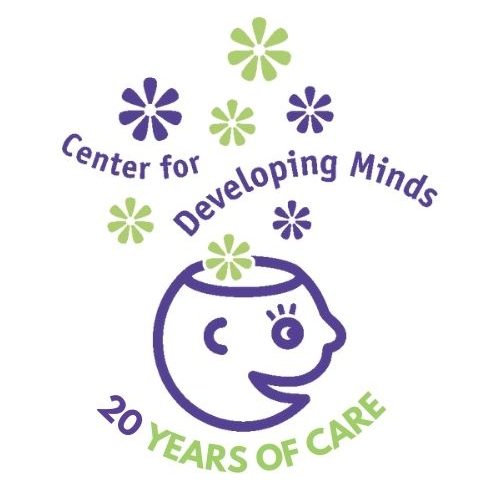To schedule an appointment for a developmental and/or behavioral assessment, psychoeducational testing, early learning clinic class, therapy, or academic support, please call the clinic at 408.358.1853 to begin the intake process.
Our clinicians generally schedule appointments Monday through Friday, and periodically on Saturday.
_______________
Center for Developing Minds clinic masking update:
Effective until March 31, 2026, all providers and clients in Santa Clara County health care facilities are required to wear approved face masks to help reduce the spread of seasonal respiratory and other illnesses.
As always, if you or your child have a fever, please contact the clinic to reschedule your appointment
Be well and stay healthy!
Frequently Asked Questions
General questions about the clinic.
Developmental and behavioral pediatrics (DBP) is a branch of pediatrics that addresses the physical, emotional, behavioral and social development of children and adolescents. DBP involves understanding that diverse behaviors come from diverse minds and that mental health and learning are critical to helping children and adolescents reach their full potential.
The DBP approach tends to be interdisciplinary; educators, psychologists, various therapists and other professionals are involved in evaluating and treating kids who struggle with a wide array of challenges ranging from learning and attention problems, to feeding and toilet-training issues, to developmental disabilities like autism. Young minds depend on the support of their families and communities, so this collaborative effort is important. And because chronic concerns such as prematurity, genetic disorders, and cancer can complicate a child’s development, DBP is important to comprehensive care.
Since children are all different, we individualize our assessments. But, typical evaluations generally include the following components:
- Introduction overview including strengths (hobbies, interests, talents, what’s going well) from child and parents.
- Family describes challenges and provider collects additional detail, such as health habits, family history, school performance.
- Provider interacts with child – play, writing/drawing and/or one-on-one.
- May meet with parents privately for a few minutes if requested by parents, then
- Provider explains understanding and recommendations, including the “Developing Minds Action Plan”, if appropriate, which includes next steps.
Patients at the Center for Developing Minds range from about two to twenty-two years of age. Occasionally younger children are seen when specific concerns exist.
Learning depends on a child’s relative abilities in eight critical brain functions (attention, memory, sequential skills, spatial awareness, language, motor skills, higher order cognition, and social cognition.
Therefore, our neurodevelopmental assessments unveil a child’s relative strengths and weaknesses within each of these domains. Then we demonstrate how the child’s profile impacts his/her academic performance. This approach enables us to develop a specific treatment plan that addresses the source of the delay (e.g. active working memory), and not just the delay (reading and writing) itself.
Nurse Practitioners, or NPs, are registered nurses who have the advanced education and experience necessary to perform patient care duties comparable to those of a physician. For instance, NPs are able to provide diagnostic assessments and prescribe treatments including medication. NPs are generally trained in a specialized area and have master’s and/or doctoral degrees. Like physicians, NPs are licensed in the state(s) in which they practice and maintain clinical competency through ongoing education and professional development.
We suggest you be up-front and direct with your child. The information below includes a sample letter we prepared for parents to read to their child prior to the appointment.
Informing Your Son/Daughter:
Please read or summarize the following to your child or have him/her read it over before coming in for the evaluation. Some parents like to do this the day before the visit to the Center for Developing Minds.
Pretty soon you will be going to a clinic to get some tests and to talk to people about how you do in school. Many kids come to have this done. Some kids are a little afraid or nervous before they come in, but when they go home they realize that they had fun and that they learned something about how to do better in school.
When you come to see us, you will visit with different people. You will also have some reading, math, and other tests that are for kids your age. There will be some word games, puzzles, and muscle tests that are fun to do and that tell us something about the best way for you to learn in school. You will have a checkup just like what you get when you go to the doctor, but you will not have to get a shot. Also, you will have a chance to talk with us about any problems you are having.
We do not expect to do anything that will hurt. It should mostly be interesting to you. At the end of the morning, we will have a talk with you and your mother or father (or both of them). We will try not to keep any secrets from you! We will tell you everything we found out. Then we will talk about ways to help you do better in school. You will be able to ask any questions you want.
We are all eager to meet you and become your friends.
Our reports are sent out and/or uploaded to your patient portal in two weeks. The report and Developing Minds Action Plan are quite extensive in order to supply you and others with comprehensive information.
Questions about specific services provided at Center for Developing Minds.
Treatment of children with autism is not based on the diagnosis, but on a child’s individual strengths and weaknesses. Therefore, the most important aspect of the evaluation at the Center for Developing Minds involves a detailed history. Children with autism have disproportionate delays in at least three of these domains: language, social cognition, limited flexibility or a need for repetition. Occasionally those behaviors are evident after a detailed history and examination. When more diagnostic information is required, subtleties of autism can be detected through structured play activities and ability level can be determined with cognitive or developmental testing.
There are several tests used to evaluate children for autism. The Autism Diagnostic Observation Schedule (ADOS) is the assessment tool most commonly utilized at the Center for Developing Minds.
The terms ADD/ADHD refer to non-specific diagnoses, which fail to describe the unique attributes of the child. At the Center for Developing Minds we elucidate a child’s neurodevelopmental profile in order to identify the specific breakdowns causing the child to struggle with his/her attention. Individualized behavior and/or medication plans are then created.
Many families ask if we can visit their child in the school setting. Prior to the child’s visit, we encourage families to gather as much prior testing and school information as possible. In our experience, however, after visiting our center, most families do not believe that a school visit is necessary, because we have been able to capture a sense of their child during their appointment. There are occasions when we and the family agree that more information is needed, and a school visit can be arranged. In those instances, we do need to charge for our time.
We are knowledgeable about a wide range of traditional and complimentary treatments. We make recommendations based on scientific evidence and advise families about the potential risks and benefits for other treatments.
Questions about costs, billing, and insurance.
The Center for Developing Minds does not accept payment through insurance or any managed-care companies. The inconsistency among insurance plans combined with the very detailed nature of our evaluations makes it cost-prohibitive for us to accept insurance, however, we will provide you with a billing statement that you may send to your insurance company to assist you in the reimbursement process. Please contact your insurance provider for any reimbursement questions.
Many insurance providers cover all or portions of the services we provide. We do offer a private fee scale and we will provide you with an encounter form that you may send to your insurance company to assist you in the reimbursement process. We always recommend that you contact your plan in advance to see if your visit might be reimbursed. We have posted frequently used insurance CPT codes that might be used for your visit to our center below. Using this information, your insurance company can verify for you whether or not you will be reimbursed. Some families have found that their insurance providers approve visits after explaining that Drs. Korb and Lee are two of the few board certified developmental and behavioral pediatricians in private practice in Santa Clara County.
CDM is an out-of-network provider for all insurance companies. If you wish to review your out-of-network coverage in advance, refer to the following CPT codes when inquiring with your insurance provider.
- Developmental Specialist: 1 ¾-hour assessment: 99205 (1 unit) & 99417 (4 units), 90889 (1 unit) & 90885 (1 unit).
- Educational Psychologist: two 8 – hour psych-educational testing sessions: 96132 (1 unit), 96133 (3 units), 96136 (1 unit) & 96137 (7 units) each session (two total).
- Marriage and Family Therapist: 1 hour Therapist Consultation: 90837.
- Executive Functioning Coaching: 1 hour EF support: 91279 (1 unit) & 97130 (3 units).
Simply put, we have the broadest-trained clinicians in the area, and that enables us to avoid unnecessary testing for your child. Our physicians are “double-board” certified in both pediatrics and behavioral and developmental pediatrics, and as such they are experts in learning disabilities, behavioral issues, mental health, child development, psychopharmacology, and pediatric medical health. For more than 25 years, Dr. Korb has worked on many multi-disciplinary teams that consist of experts in speech language pathology, occupational therapy and psychology. This experience, a majority of the time, allows them to develop a treatment plan without needing detailed testing. On the occasion when further analysis is needed, we provide focused testing to pin-point the issues. At other centers, patients are often subjected to a “one size fits all” approach where they are given broad testing – this approach is very time consuming and costly.
Since your relationship with the Center for Developing Minds is confidential, you must provide us with a signed release to send records to any other agency. You may sign a release in our office or have the agency requesting the records send us your signed release form.
There is no charge for records being sent to schools or for continuation of medical treatment. There is a $25.00 fee for additional records to be sent to attorneys, insurance companies or any other agency that does not provide direct medical treatment for the patient.
The Center for Developing Minds values your time and we appreciate you valuing ours. We have waiting lists for appointments; therefore all missed appointments are subject to a charge. If you are unable to keep your appointment, please provide us with at least 2-business days notice, or you may be charged a cancellation fee of 50% of the cost of the office visit.
Questions about scheduling appointments.
The Center for Developing Minds offers a wide range of services to meet each child’s needs. Some children come for one or two visits to receive a detailed assessment and a Developing Minds Action Plan. Other children return more frequently for ongoing behavioral treatment planning or medication management. Most of our patients choose to return periodically over the years for a ‘developmental check-up.’
Your child should attend all scheduled appointments. On occasion parents/caregivers may want to meet with the doctor without your child in attendance. That can be scheduled, but please be aware that most insurance plans do not cover appointments when the child is not in attendance.

